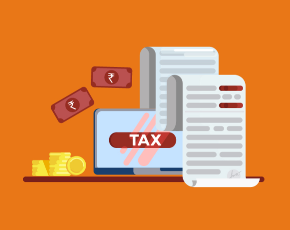-
Plans
-
TERM
INSURANCE
- ICICI Pru
iProtect Smart (Bestseller)`~Lumpsum
Payout
- Claims amount paid out in single instalments (lumpsum)
- Up to 5%`= Online Discount (Lifetime)
- Affordable High Life Cover!a to protect your family
- Up to 15%2 Salaried Discount (For 1st Year premium)
- Tax benefit^ on premiums paid and tax-free^ claims payout
- Optional 34 Critical Illnesses## rider & Accidental Death Benefit9 rider
- ICICI Pru iProtect Smart Monthly Income Payout
- Claims amount paid in monthly instalments
- Up to 5%`= Online Discount (Lifetime)
- Up to 30%*2 discount on premiums for monthly income payout (Lifetime)
- Up to 15%2 Salaried Discount (For 1st Year premium)
- In-built Terminal Illness Benefit3A and Permanent Disability Waiver5
- Optional 34 Critical Illnesses## rider & Accidental Death Benefit9 rider
W/II/1316/2023-24
- ICICI Pru iProtect Smart (Term Plan for Women)
- Affordable High Life Cover!a to protect your family
- Flat 15%F Discount for Women on Life Cover (Lifetime)
- Up to 5%`= Online Discount (Lifetime)
- Up to 15%2 Salaried Discount (For 1st Year premium)
- 34 Critical Illnesses Cover## (Optional)
- Tax benefit^ on premiums paid and tax-free^ claims payout
W/II/0354/2024-25
- ICICI Pru iProtect Super (New)(No income documents requiredI)
- Affordable Life cover1 to protect your family: No Income Documents RequiredI
- 12-month Premium BreakP @ ₹0 extra cost
- Terminal Illness Benefit6 and 100% Premium Refund3 option @ ₹0 extra cost
- Optional Additional Accidental Death4 and Disability5 rider
- On 1st Year Premium: 5%! Online Discount & 7%L Loyalty Discount
- Flat 15%F Lifetime Female Discount
- Term Insurance with Returns
-
ICICI
Pru
iProtect
Smart
–
Smart
Exit
Option(Optional
Return)
- Affordable High Life Cover2a to protect your family
- Flexibility to exit earlyō and get back total premiums paidS1
- Optional 34 Critical Illnesses## rider of up to ₹ 1 crore
- Optional Accidental Death Benefit9 rider of up to ₹ 2 crore
- In-built Terminal Illness Benefit4 and Permanent Disability Waiver5
- Tax benefit^ on premiums paid and tax-free^ claims payout and returns
- Special discount2 on first year’s premium for salaried customers
-
ICICI
Pru
Protect
N
Gain
(New)(Market
Linked
Return)
- Potential to grow your wealth with Market Linked Returns
- Life cover1 up to 125x of Annual Premium7
- Return of Mortality and premium allocation charges2
- Unlimited tax-free* partial withdrawals4 allowed, that too free of cost
- Take control of your investments with unlimited free fund switches6
- Tax benefit* on premiums paid and tax-free* claims payout and returns
-
ICICI
Pru
iProtect
Smart
Return
of
Premium(Guaranteed3
Return)
- High life cover1 to protect your family
- Guaranteed3 100% return of premium3 on survival
- Tax* benefit on premiums paid u/s 80C
- Optional Accidental Death Rider4 of up to ₹ 3 crore
- Optional Accidental Total and Permanent Disability Rider5 of up to ₹ 3 crore
- 15%F lower premiums for women (lifetime)
W/II/1208/2024-25
-
ICICI
Pru
iProtect
Super
(New)(No
income
documents
requiredI)
- Affordable Life cover1 to protect your family: No Income Documents RequiredI
- 12-month Premium BreakP @ ₹0 extra cost
- Terminal Illness Benefit6 and 100% Premium Refund3 option @ ₹0 extra cost
- Optional Additional Accidental Death4 and Disability5 rider
- On 1st Year Premium: 5%! Online Discount & 7%L Loyalty Discount
- Flat 15%F Lifetime Female Discount
- ULIP (UNIT LINKED INSURANCE PLANS)
- ICICI Pru Signature Assure (New)
-
ICICI
Pru
Signature
(Popular)
- Financial protection for your loved ones with life cover
- Tax benefits u/s 80C & 10(10D)4
- Return of mortality and policy administration charges1
- Withdraw money regularly from your policy with SWP3
For offline Signature refer to Offline Signature Brochure
-
ICICI
Pru
Protect
N
Gain(Market
Linked
Return)
- Potential to grow wealth through market linked returns*
- Life cover1 to secure your loved ones
- Systematic withdrawal plan4 to withdraw money regularly from your policy
- Tax benefits6 as per prevailing tax laws
- Return of Mortality and Premium allocation charges4
- Maturity booster5 to boost your fund value
- ICICI Pru Platinum
-
ICICI
Pru
Signature
Pension
- Build your retirement corpus through market-linked returns and live a stress-free life after retirement
- Tax-free commutation of up to 60% of the vesting benefit1
- Flexibility of Partial Withdrawals2
- Choice of 3 portfolio strategies and a wide range of funds3
- Low-cost charge structure with return of charges at vesting4
-
ICICI
Pru1
Wealth
- Invest only once and enjoy benefits for entire policy term
- 100% amount invested in wide range of funds
- Choice of multiple funds
- Life cover to protect your loved ones
- Tax benefits up to ` 46,800 u/s 80(C) and 10(10D)
- ICICI Pru LifeTime Classic
- ULIP WITH CAPITAL GUARANTEE
- Signature Capital Guarantee II Solution
-
ICICI
Pru
Save
N
Grow
- 100% Capital guarantee1 + market-linked returns2
- 22 diverse fund options across equity, balanced and debt
- Protect your loved ones financially with a life cover4
- Tax3 benefits u/s 80C and 10(10D)
- Boost your returns with maturity boosters6
- Tax3 benefits u/s 80C and 10(10D)
- Guaranteed Return Plans
- Child Plans
- RETIREMENT AND PENSION PLANS
-
ICICI
Pru
Signature
Pension
(New)(Market
Linked
Return)
- Build your retirement corpus through market-linked returns and live a stress-free life after retirement
- Tax-free commutation of up to 60% of the vesting benefit1
- Flexibility of Partial Withdrawals2
- Choice of 3 portfolio strategies and a wide range of funds3
- Low-cost charge structure with return of charges at vesting4
-
ICICI
Pru
Guaranteed
Pension
Plan
FlexiRegular
Premium
Future
Income
- A regular-pay deferred annuity plan that helps you gradually build the retirement savings and provide guaranteed income for life
- Flexible premium paying terms and deferment periods
- Choice of increasing annuity options that will give you inflation hedged retirement income in your golden years
- Flexibility to withdraw up to 60% of total premiums paid as lumpsum
- Financial security for your family even in your absence, with the Waiver of Premium feature3
- Annuity plan can cover either single or joint life2
- Tax benefits as per prevailing tax laws
- ICICI Pru Saral Pension PlanSingle Premium Immediate Income
- ICICI Pru Gold Pension Savings Plan
-
ICICI
Pru
Guaranteed
Pension
PlanDeferred
Annuity
- Single premium plan to get guaranteed income for the rest of your life
- Option to defer income by up to 10 years
- Annuity plan can cover either single or joint life
- Flexible payout options to suit your need
- Tax benefits^ on premium paid u/s 80CCC and commutation u/s 10(10A) of Income Tax
-
ICICI
Pru
Guaranteed
Pension
PlanImmediate
Annuity
- Single premium plan to get guaranteed income for the rest of your life
- Option to get annuity income as early as next month
- Annuity plan can cover either single or joint life
- Flexible payout options to suit your need
- Tax benefits^ on premium paid u/s 80CCC and commutation u/s 10(10A) of Income Tax
- SAVINGS/ ENDOWMENT PLANS
-
ICICI
Pru
Gold
(New)
- Regular income1 up to 99 years of age followed by a lump sum2 on maturity
- Option to start receiving income immediately from the end of 1st policy year/month or defer3 it for a few years as per your need
- Protection through life cover4 till up to 99 years of age
- Tax benefits5 may be applicable on premiums paid and benefits received as per prevailing tax laws
-
ICICI
Pru
Sukh
Samruddhi
(New)
- Choice to avail benefits as either Income or Lump sum
- Life cover1 for financial protection of your loved ones
- Option to receive income on any date of your choice with ‘Save the Date’2
- Option to accumulate income and withdraw it later as per your convenience with ‘Savings Wallet’3
- Tax benefits4 may be applicable on premiums paid and benefits received as per prevailing tax laws
- ICICI Pru Future Perfect
-
ICICI
Pru
Savings
Suraksha
- Life cover1 to protect your loved ones
- Guaranteed* Maturity Benefit2 and Guaranteed* Additions3
- Get Reversionary and Terminal Bonus4, if declared
- Tax5 benefits may be applicable to premiums paid and benefits received as per the prevailing tax laws
*Conditions apply
- Health Insurance Plans
-
ICICI
Pru
Wish
(New)
- Comprehensive coverage1 against women specific critical illnesses2 and surgeries2
- Cover1 for surgeries2 resulting from specific illnesses2
- Fixed lump sum1 pay-out on diagnosis of any of the covered critical illnesses2
- Premium remains guaranteed3 throughout the coverage term
- Coverage1 for pregnancy complications and newborn complications through Maternity Care Benefit under Health Care Plus plan option
- Premium Sabbatical4 Benefit which allows you to get one full year’s premium holiday, while enjoying full policy benefits
-
ICICI
Pru
iProtect
Smart
-
Life
&
Health(Life
Cover
+
Critical
Illness
Cover)
- Up to ₹1 crore 34 Critical Illnesses## cover (optional)
- Adequate Life cover!a to protect your family
- Covers diseases like Cancer, Heart Attack, organ failure, etc
- Lumpsum Critical Illness## claims payout based on diagnostic report
- In-built Terminal Illness Benefit3 and Permanent Disability Waiver5
- Tax benefit^ on premiums paid (80C/80D) and tax-free^ claims payout (10(10D))
*Conditions apply
- ICICI Pru
iProtect Smart (Bestseller)`~Lumpsum
Payout
- Term Insurance
- Claims
- Library
-
UNDERSTANDING
LIFE
INSURANCE
-
Insurance
Guide
- What is Life Insurance?
- What is Term Insurance?
- What is Health Insurance?
- What are ULIPs?
- What are Retirement Pension Plans?
- What are Child Insurance Plans?
- What is Annuity?
- What is an Endowment Policy?
- What is Critical Illness Insurance?
- Guide to Claims Settlement Ratio
- What is MWP Act?
- What are Riders?
- Whole Life Insurance
- Life Insurance Plans
- Compare Health Insurance
- Compare Pension Plans
- Annuity Plans
- Money Back Policy
-
Tax
Planning
- Income Tax Slabs & Rates
- Income Tax Calculator
- How to Save Income Tax
- TDS (Tax Deducted at Source)
- Tax Saving Life Insurance Plans
- Understanding Section 80C
- Understanding Section 80D
- Learn about Goods & Services Tax (GST)
- How to file ITR online?
- Understanding Section 80E
- Understaing Section 80 on Income Tax Act
- Indirect Tax
- NRI Corner
- Blogs and Articles
- More Information
-
Insurance
Guide
-
UNDERSTANDING
FUNDS
-
FAQS
-
TOOLS
AND
CALCULATORS
-
Calculators
- Term Insurance Premium Calculator
- Income Tax Calculator
- Pension Calculator
- Child Education Plan Calculator
- Power of Compounding Calculator
- Retirement Planning Calculator
- Home Loan Insurance Calculator
- Human Life Value Calculator
- HRA Calculator
- Cancer Insurance Calculator
- EMI Calculator
- BMI Calculator(New)
-
Calculators
-
TESTIMONIALS
-
Guides
and
handbooks
- Customer Services
- Track Application
- Public Disclosure
- Tax Centre
- Pay Premium
- About Us
- Careers
- Contact Us
- Testimonials
-
TERM
INSURANCE
EMI Calculator
0 |
25L |
50L |
75L |
1CR |
1.25CR |
1.5CR |
1.75CR |
2CR
0 |
2.5L |
5L |
7.5L |
10L |
12.5L |
15L
0 |
5L |
10L |
15L |
20L
10Y |
15Y |
20Y |
25Y |
30Y
0Y |
1Y |
2Y |
3Y |
4Y |
5Y
0Y |
2Y |
4Y |
6Y |
8Y |
10Y
120 Mths |
180 Mths |
240 Mths |
300 Mths |
360 Mths
0 Mths |
12 Mths |
24 Mths |
36 Mths |
48 Mths |
60 Mths
0 Mths |
30 Mths |
60 Mths |
90 Mths |
120 Mths
1% |
5% |
10% |
15% |
20%
1% |
5% |
10% |
15% |
20% |
25%
1% |
2% |
3% |
4% |
5%
(Principal + Interest)
What is EMI?
Equated Monthly Instalment or EMI is the fixed amount a borrower pays every month towards the repayment of their loan. It has two components - the principal and the interest- and is usually paid on a fixed date every month.
What are the various factors that affect your due amount?

Principal amount
The higher the principal amount, the more you will pay in dues. The interest added to this principal determines your recurring payments.

Interest rates
Interest rates play a key role in your due amount. With higher interest rates, you will owe more, while lower rates will reduce the total amount due.

Longer repayment tenures
A longer repayment tenure can lower your monthly dues but result in higher overall payments due to accumulated interest over time.

Fees & penalties
Any additional fees or penalties can increase your due amount. These can add up quickly and raise the total amount you owe.
How to use the EMI calculator?
You can use an EMI calculator to arrive at your EMI amount for your personal loan, home loan or even car loan. All you have to do is insert your loan amount, tenure and the rate of interest on the loan.
It then gives you the EMI amount along with the total interest payable.

How do EMI Calculators work?
The formula for calculating EMIs is:
EMI = [P × r × (1 + r)^n]/[{(1 + r)^n} - 1]
Here:
- P = loan amount
- r = rate of interest
- n = loan tenure in months
To determine your EMI amount, enter the loan amount that you wish to borrow, the loan tenure within which you intend to repay the money, and the interest rate that your borrower charges.
What are the types of EMI Calculators?
There are three types of EMI Calculators:

Home Loan EMI Calculator:

Personal Loan EMI Calculator:

Car Loan EMI Calculator:

For instance: If you take a home loan of ₹ 20 lakh for a tenure of 20 years, at an interest rate of 10.5%, entering these values will show you that your EMI amount will be ₹ 19,968.



What are the benefits of using an online EMI Calculator?
Below are some benefits of using an online EMI interest calculator:

Free of charge:
An online EMI calculator is completely free. You do not need to pay any fees or charges to access the tool
Quick & accurate calculation:
An online EMI calculator provides quick and precise results. In just a few seconds, you can know the total amount of your dues.
Transparency:
Using an EMI calculator brings transparency by helping you understand how the monthly EMI is determined.
Customisable inputs:
An online EMI calculator allows you to customise the inputs based on your specific requirements. You can enter different amounts, interest rates and tenures to see how these factors affect your monthly EMI.
 1800-209-9777
1800-209-9777
Frequently Asked Questions
What happens in the case where the interest rate reduces or increases during the tenure of your loan?

What happens when you partially prepay the loan?

What happens if you skip your EMI?

How are EMIs calculated on loans with a floating interest rate?

People like you also read...


- Premium Payment
- Download Statements
- Manage Your Funds
- Update Profile Details
- Sitemap
- Public Disclosure
- Bonus Declaration
- Goods and Services Tax Rates 2017
- Download Centre
- Newsroom
- Do Not Call
- Local DNC Check
- Cookie Policy
- Disclaimer Policy
- Privacy Policy
- Terms and Conditions
- Grievance Redressal
- Citizens' Charter
- IRDAI
- IRDAI website for policyholder education
- Bima Bharosa
- Electronic Insurance Account
- Fund Performance
- Claims
- Our Delighted Customers
- Contact Us
- Hospital Network
- Blogs
- Send Me An Advisor
- Old Products
- COI
- PMJJBY
- Login Assistant
- NRI GST Benefit
- Account Aggregator
- Investors: Disclosures under Reg 46 & 62 of SEBI LODR
- SMART ODR Portal
- Ayushman Bharat Health Account (ABHA)
© ICICI Prudential Life Insurance Co. Ltd. All rights reserved. Registered with Insurance Regulatory & Development Authority of India (IRDAI) as Life Insurance Company. Regn. No. 105. CIN: L66010MH2000PLC127837.



